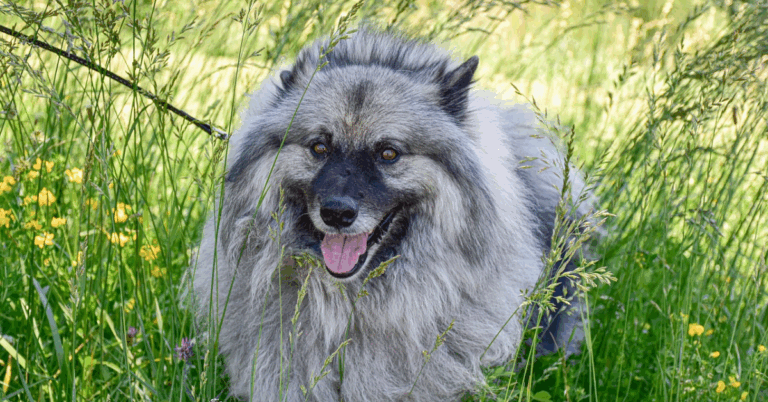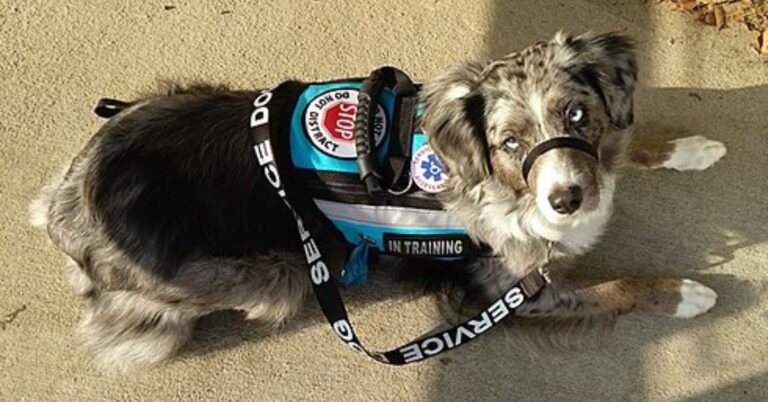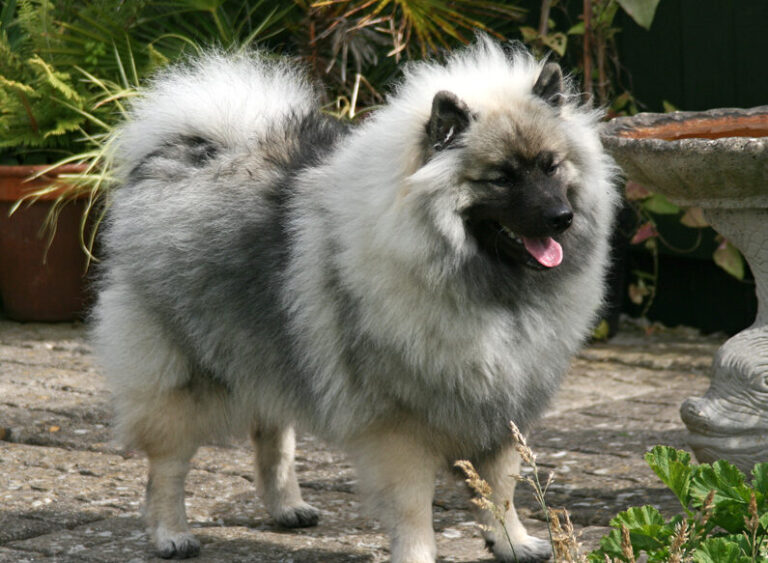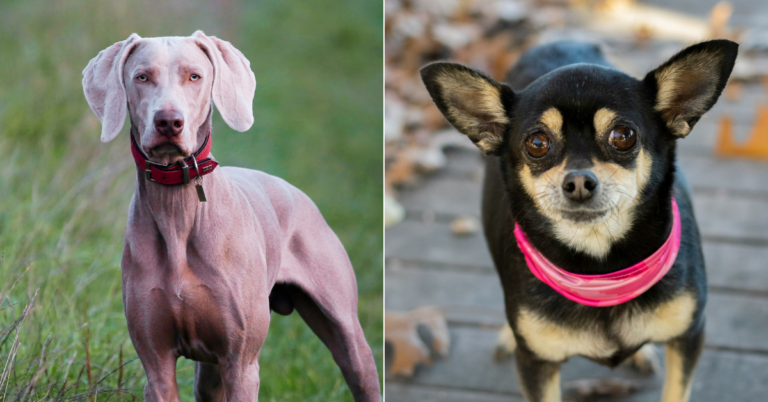15 Essential Things to Consider While Feeding a Shih Tzu

The Shih Tzu, with its appearance and personality, requires special attention when it comes to feeding. To ensure your Shih Tzu thrives, it’s essential to be mindful of what, how, and when you feed them. So, below are 15 important things to consider when feeding a Shih Tzu.
High-Quality Protein is Key
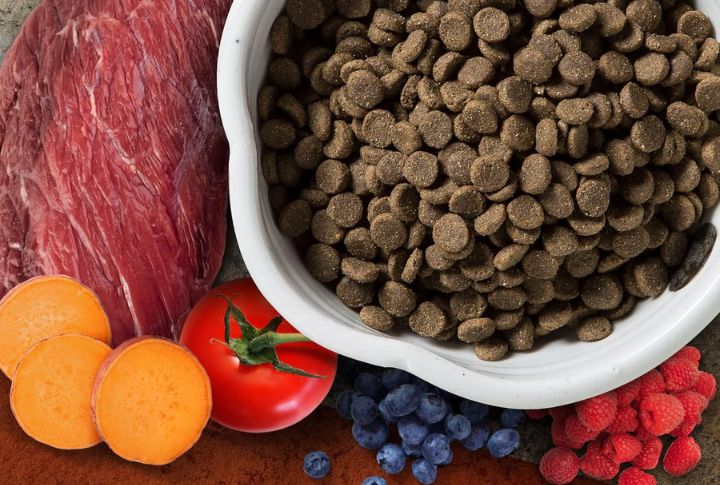
A Shih Tzu’s diet should be rich in high-quality protein to support their muscle development and energy needs. Choose dog food that lists a real meat source (like chicken or lamb) as the basic ingredient. Avoid foods with excessive fillers, like corn or soy, which offer little nutritional value.
Small Kibble Size

Shih Tzus have small mouths and jaws, so the size of the kibble matters. Small, bite-sized kibble is easier for them to chew. It also reduces the risk of digestive problems and choking. Hence, look for brands that offer small-breed formulas specifically designed for smaller mouths.
Watch the Calorie Count

Shih Tzus are dogs with relatively low caloric needs, so you can’t let them go ham on the food. Overfeeding can easily cause obesity, and cause numerous health problems, including joint issues and respiratory difficulties. Always follow the feeding guidelines based on your dog’s weight and activity level.
Balanced Nutrients

A balanced diet for this breed should feature the right blend of protein, fats, vitamins, and minerals. Pick food options that meet the Association of American Feed Control Officials bar for balanced nutrition. Ensuring your Shih Tzu gets all essential nutrients is important for their health and energy levels.
Omega-3 and Omega-6 Fatty Acids
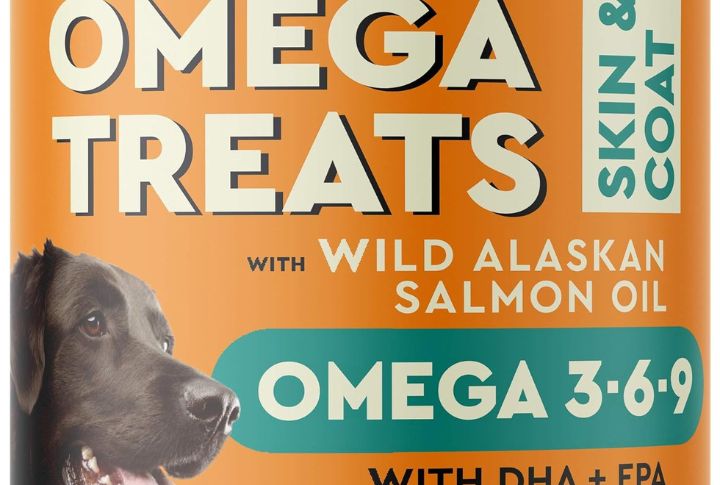
Shih Tzus are known for their luxurious coats, and maintaining healthy skin and fur requires a diet filled with omega-3 and 6 fatty acids. These essential fats help prevent dry skin, itching, and shedding. Fish oil supplements or foods containing fish or flaxseed oil can provide these benefits.
Avoid Common Allergens

Many Shih Tzus can be sensitive to certain ingredients, such as grains, soy, or artificial additives, which can trigger allergies or digestive upset. Consider feeding them grain-free formulas or those made with limited ingredients if you notice symptoms like itching, ear infections, or gastrointestinal problems.
Hydration is Important

Proper hydration is essential for a Shih Tzu’s digestion, circulation, and overall well-being. Ensuring your dog has 24/7 access to fresh water is essential to keeping them healthy. Incorporating wet food options into their diet can be a helpful way to boost their water intake.
Monitor Weight Consistently

Due to their compact size, even a few extra pounds can significantly impact a Shih Tzu’s health. Regularly monitoring their weight and adjusting their food portions helps prevent obesity. If your dog starts gaining or losing weight unexpectedly, it may be time to reassess their diet or visit a vet.
Consider Their Age

Your Shih Tzu’s nutritional needs will change over time. Puppies, adults, and seniors all require different formulations to meet their specific needs. Puppy food is full of calories and nutrients for growth, while senior dog food focuses on supporting aging joints and maintaining a healthy weight.
Opt for Digestive Support

Shih Tzus can be prone to digestive issues, so look for foods that contain prebiotics and probiotics. These ingredients help maintain gut health and improve digestion. Foods with added fiber, like sweet potatoes or pumpkin, can also aid in preventing constipation and promoting regular bowel movements.
Avoid Human Foods
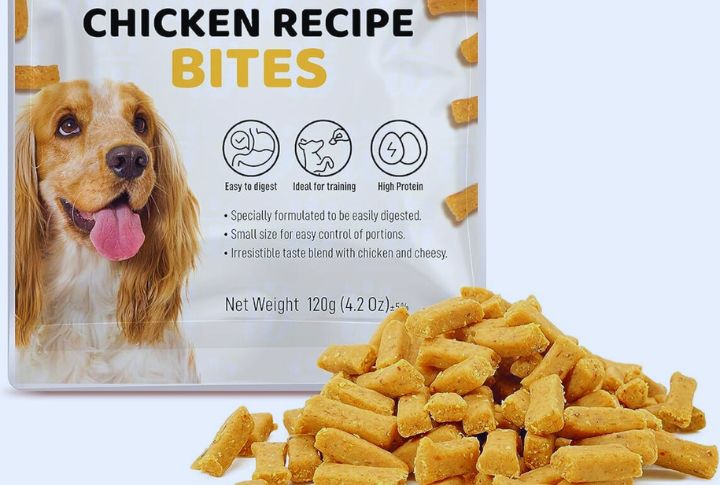
While it can be tempting to share your meals with your Shih Tzu, many human foods are harmful to dogs. Chocolate, onions, garlic, grapes, and certain artificial sweeteners (like xylitol) fall under this category. Stick to dog-friendly treats or veterinarian-approved snacks to avoid accidental food poisoning or gastrointestinal distress.
Watch for Food Sensitivities

If your Shih Tzu frequently experiences gastrointestinal problems or skin irritations, they may have a food sensitivity. Keep an eye out for symptoms like vomiting, itching, sunken eyes, or hair loss, and consider switching to a hypoallergenic or limited-ingredient dog food if these issues persist and consult a veterinarian.
Dental Health Matters
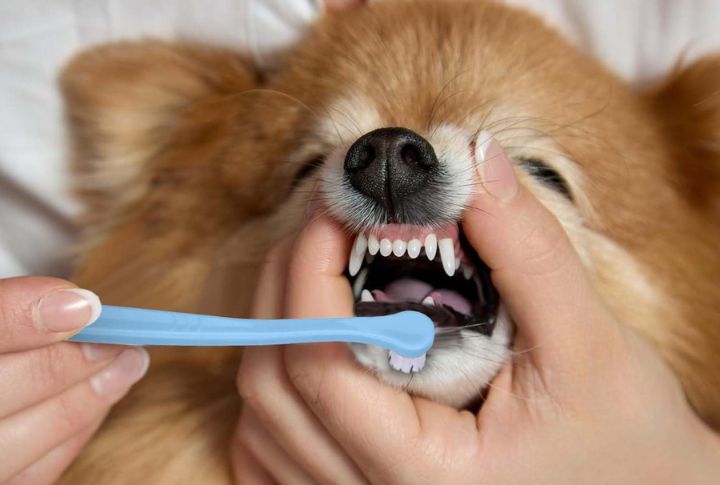
Since Shih Tzus are prone to dental issues, their diet plays a role in maintaining healthy teeth and gums. Crunchy kibble can help lower the chance of plaque buildup while adding dental chews or toys can assist in cleaning their teeth. Regular brushing is still a must.
Feed Multiple Small Meals

Shih Tzus can benefit from eating multiple small meals throughout the day rather than one or two large ones. Smaller, frequent meals help maintain their energy levels and prevent hypoglycemia, a condition that small breeds like Shih Tzus are prone to if they go too long without food.
Treats in Moderation
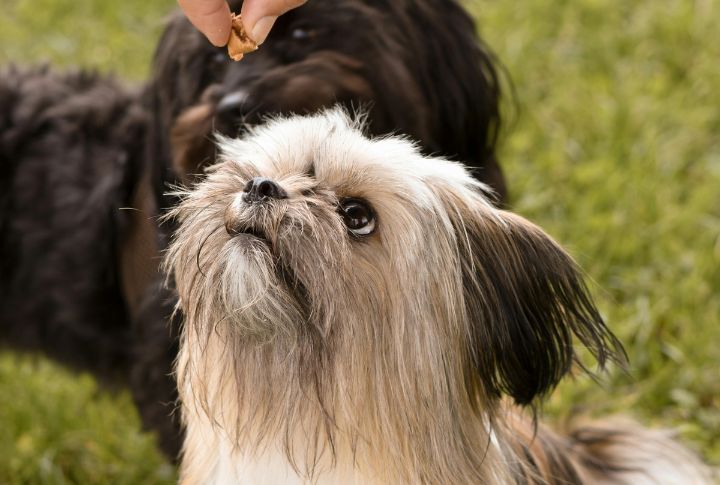
Treats are a great way to reward your Shih Tzu, but they should be given in moderation. Excessive treats can lead to excessive weight gain and throw off the balance of their diet. Take care of the calorie content of treats and use them sparingly. Opt for low-calorie options when possible.
